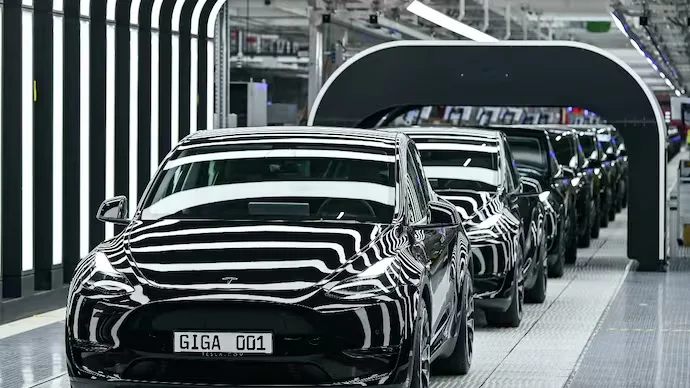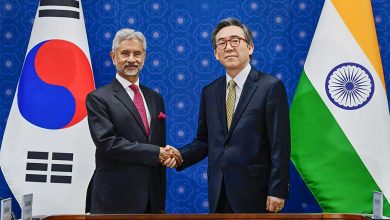Tesla’s India entry faces hurdle, local firms resist lower EV import tax: Report
EV maker Tesla's entry into India could be delayed further as the government has not taken any decision on the demand to lower import tax on vehicle imports.

Tesla’s India much-anticipated entry into the Indian market is reportedly facing a hurdle, with local companies resisting a proposal to lower the import tax on electric vehicles (EVs). The resistance from domestic firms adds a layer of complexity to Tesla’s expansion plans in India.
Background:
Tesla, the electric vehicle giant led by Elon Musk, has been eyeing the Indian market as part of its global expansion strategy. However, the resistance from local companies to lower the import tax on electric vehicles could pose challenges to Tesla’s entry and growth in the country.
Key Points:
- Import Tax Reduction Proposal: The Indian government has reportedly proposed a reduction in the import tax on electric vehicles to encourage the adoption of cleaner and sustainable transportation. However, this move has been met with resistance from local companies, including automakers, who argue that it could lead to an uneven playing field.
- Local Industry Concerns: Domestic automakers are expressing concerns about the potential impact on their competitiveness if the import tax on electric vehicles is lowered significantly. They contend that a substantial reduction could give an advantage to international players like Tesla, affecting the level playing field for all participants in the Indian market.
- Tesla’s Entry Plans: Tesla has been exploring opportunities to establish a presence in India, a market with growing interest in electric vehicles and sustainable mobility solutions. However, the ongoing discussions and resistance from local firms regarding import tax changes may impact Tesla’s entry timeline and strategy.
- Balancing Incentives and Fair Competition: The Indian government faces the challenge of striking a balance between providing incentives for the growth of the electric vehicle sector and ensuring fair competition within the industry. The resolution of these discussions will likely involve careful consideration of the concerns raised by both international and domestic stakeholders.
- Market Potential for Electric Vehicles: Despite the current challenges, India represents a significant market potential for electric vehicles, given the increasing focus on environmental sustainability and the government’s push for cleaner transportation alternatives.
Conclusion:
Tesla’s entry into the Indian market, anticipated by enthusiasts and industry observers, appears to be encountering resistance from local firms opposing the proposed reduction in import tax on electric vehicles. As discussions unfold, finding a harmonious solution that fosters fair competition while promoting the growth of the electric vehicle sector will be crucial for Tesla and other players eyeing the Indian market. The outcome of these negotiations will likely shape the landscape for electric vehicles in India in the coming years.




